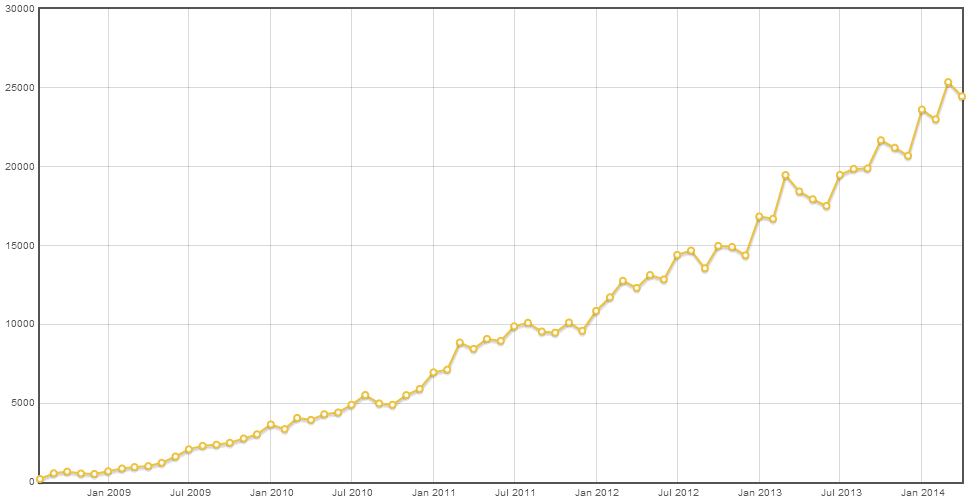Disclaimer: I'm a new user to SO in terms of posting questions and comments, and more generally being interested in the site beyond it being the first hit in Google for my programming question. Sorry in advance if I'm just a noob who doesn't "get it".
Reading comments on SO by high-rep users and many of the discussions here on MSO, there seems to be a consensus that SO is taking a turn for the worst because of the flood of poor quality questions. But I have a hard time of seeing why this is implicitly bad and am interested in finding out exactly why.
One reason I've seen stated is that it decreases the signal to noise ratio. How is that? In my experience, Google has no problem cutting through the cruft and usually delivers me the question and answers I'm looking for, straight at the top. Are there hundreds of duplicates of that question? Probably. Does it affect my user experience in finding what I want? No, never (at least for me).
Are high quality questions being missed because of the others? Doesn't look like it. Every single question, no matter how off-topic/poorly-spelled/duplicate-obvious is immediately viewed/commented/voted-upon/answered by legions of rep-hungry users. It's hard to imagine that anything slips through the cracks.
Is it storage space on the backing servers? Nostalgia of an era before the Internet discovered SO?
Again, I'm just trying to figure out what seems implicitly obvious to a lot of people.
Without an understanding of why concretely the flood of bad questions is bad, I can't help but feel that there's nothing wrong with people answering those bad questions (qualified as whores in a recent topic) - and no good reason why I shouldn't do it myself. At least they are (possibly) helping someone. The poor question will come and go and I fail to see the negative consequence.
I would also like to add that some of these bad questions aren't just students looking for someone else to do their homework. Many of these people are just from different professional fields not related to computers who are discovering that some basic programming can actually help them in a meaningful way. Think of a small time teacher in a developing country who found out that a basic database program could make his life a lot easier. He will post a very basic SQL question that checks every mark on the list of "how not to post questions". I hate to think that changes to SO will automatically prevent him from getting an answer in the future.
Edit
I ran some queries in SEDE and thought I would put the results here. They basically illustrate what people have answered, that good questions are getting lost in the ocean of crap (sounds obvious but at least one indicator here is evolving positively).
# of HQ questions % of HQ questions Avg accepted response time
unanswered (in days) to HQ questions
2010 88272 17% 23.0
2011 97908 18% 19.4
2012 72864 21% 15.3
2013 39485 27% 9.4
(A HQ question is a question with a score over 5.)
If I didn't screw up my SQL (those response times seem very high), although good questions are answered much quicker than before, a smaller proportion of them are answered at all. The increase in unanswered HQ questions is very sharp in 2013. Also, there is a very strong drop in high rated questions altogether.
Edit 2
As mike z pointed out, the previous results for average accepted answer time are skewed tending to give longer response times to older questions. I ran instead the proportion of HQ questions seeing an accepted answered in under a month and indeed they reveal a decrease as well:
2010 75%
2011 73%
2012 69%
2013 64%

Xand not aYas in the definitive answer?